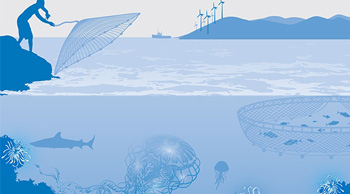
Enviro fund to support rural poor
It is important for Namibia to invest in the protection of its ecosystem and the maintenance of ecological functions as more than 70% of its people depend on natural resources for their livelihoods, said President Hifikepunye Pohamba, at the launch of the Environmental Investment Fund (EIF) on Monday this week.
The fund is expected to play a major role in conservation initiatives within the country.
“There are reasons why Namibia has prioritised environmental sustainability and enshrined that in our constitution, the main rationale being the arid and semi-arid conditions that characterise most of our topography and harsh climatic conditions that prevail in our country. Secondly, Namibia’s economy is largely based on the natural resource sectors such as mining, fisheries, agriculture and nature-based tourism which alone account for approximately 40% of gross domestic product (GDP) and 85% of exports,” said President Pohamba in a speech delivered on his behalf.
He further said that the utilisation of natural resources has always been an integral part of the economy and it is therefore only logical to invest in the protection of the ecosystem and the maintenance of ecological functions to sustain the economy.
The objectives of the Environmental Investment Fund are to procure funds from international donors for the maintenance of endowment which will generate a permanent stream of income and to procure funds within Namibia on an annual basis from conservation fees and environmental levies.
The EIF was established after the promulgation of the Environment Investment Fund of Namibia Act of 2001, in order to support sustainable environmental and natural resources management.
The EIF aims to provide economic opportunities to poor Namibians.
“The ultimate objective is to improve the quality of life for the poor living in Namibia and ensuring the economic well being of the environment sector. The EIF will play an important role in assisting society to protect its natural resource base, while at the same time providing economic development. Poverty alleviation is one of the targets of the national development strategy, and the EIF therefore places priority in funding project activities that integrates environmental sustainability and economic development,” the Ministry of Environment and Tourism said in a statement.
More than N$37 million has been allocated to the environment fund. Once fully functional, the fund could generate N$300 million annually through environmental levies. Examples of such levies include carbon tax and waste management levies on plastic bags, non-recyclable cans and toxic substances.











































